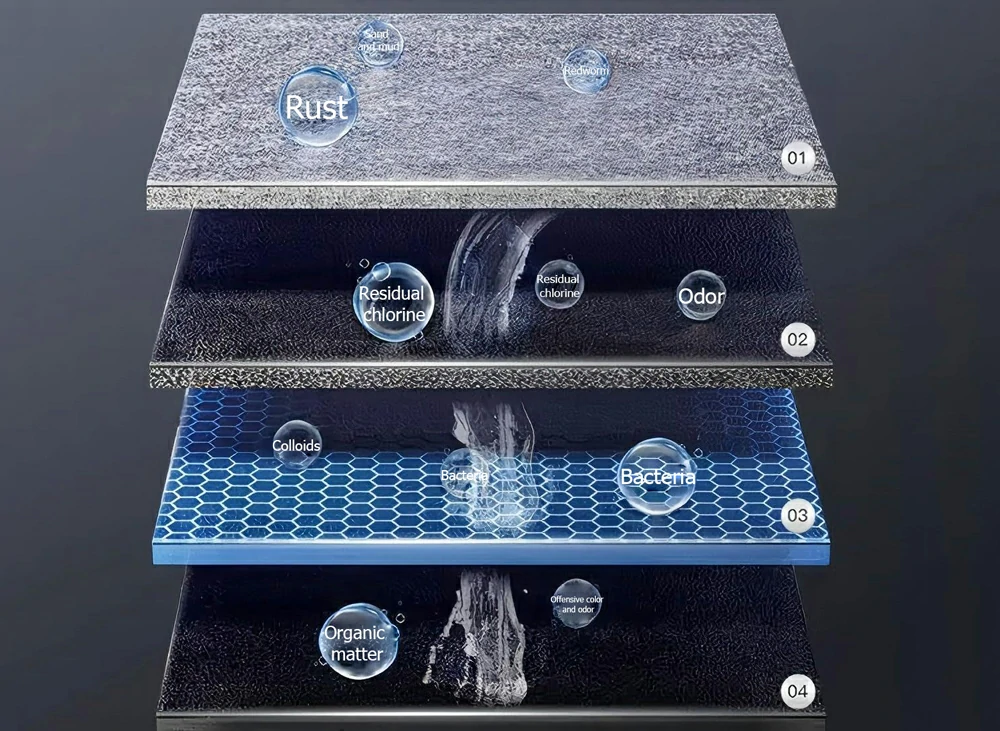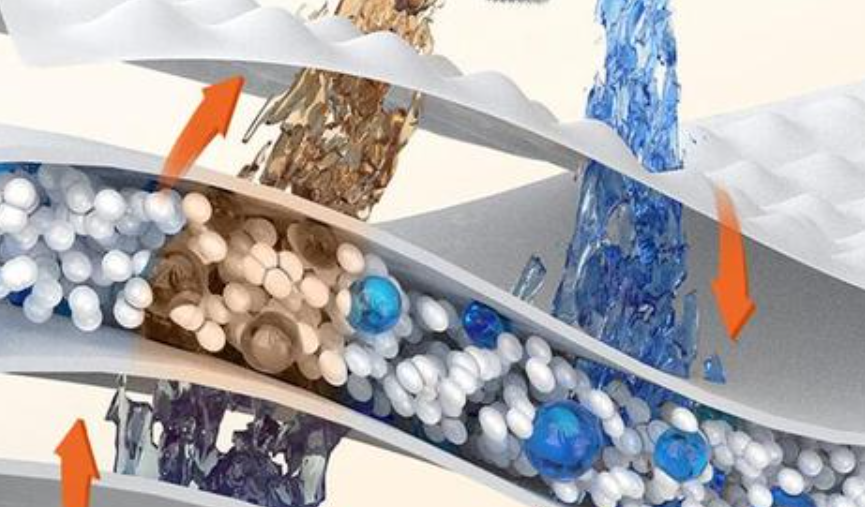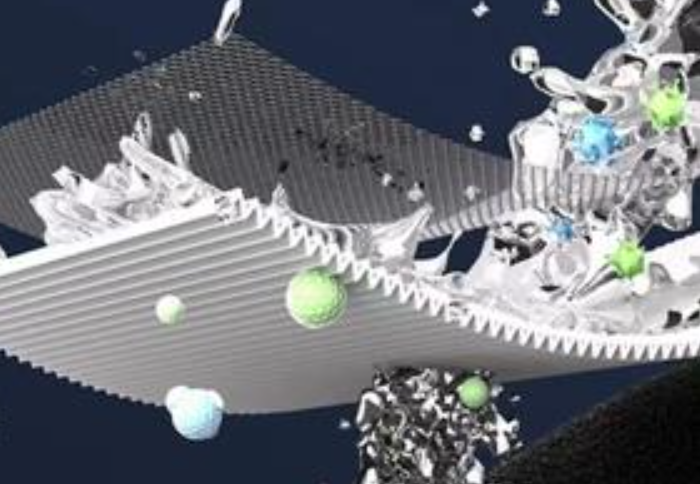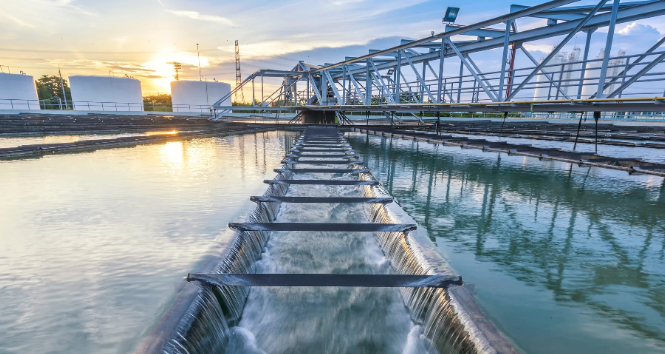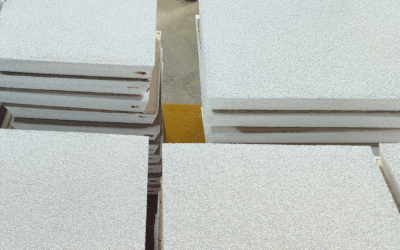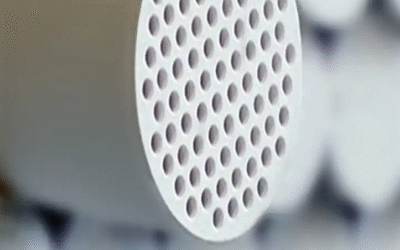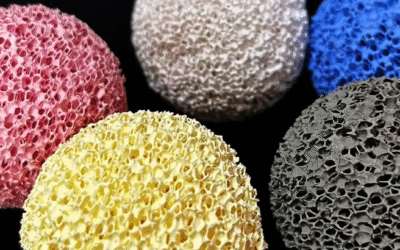From my perspective, industrial water filtration is essential for European manufacturing. It supports key industries like chemicals, food and beverage, pharmaceuticals, power, and automotive production. As we look at 2025, I see the European market facing new challenges and opportunities. These are caused by strict EU water quality rules, such as the Urban Waste Water Directive and the Industrial Emissions Directive. Industries are also working to use less water, cut pollution, and improve circular water management.
In my experience, European manufacturers and tech providers are focusing on a few main goals:
- Reliable Processes & Strong Equipment: I believe good filtration ensures production runs smoothly. It also makes industrial equipment last longer.
- Meeting Regulations: Companies have to meet tougher standards for water discharge and quality. This helps them avoid fines.
- Protecting the Environment: Modern systems are designed for a purpose. They reduce water use, use fewer chemicals, and help the EU reach its net-zero water goals by 2050.
Industrial Water Filter Market Size and Players
I’ve found that Europe has more than 28 major industrial water filtration manufacturers with regional headquarters. Leaders in the industry include companies like Veolia, which has over 4,000 industrial contracts. Suez, Xylem, Pentair, Ecolab, and Kurita are also key players. They provide complete, advanced water treatment for thousands of sites.
Innovation and Technology
I suggest looking at what makes the top companies special:
– New Technology like ultrafiltration, reverse osmosis, and membrane bioreactors. They also offer self-cleaning systems and remote monitoring that uses AI.
– Focus on Sustainability, offering systems that can cut water use by over 25%. They also make it easier to reuse water, which I think is a huge benefit.
– Complete Solutions, handling everything from designing and installing the system to its daily operation and upkeep.
Application Examples
These industrial water filtration companies install filtration systems with varying capacities. I’ve seen them range from hundreds to tens of thousands of cubic meters per day. The size depends on the industry and the scale of the plant. For instance: – Trislot NV in Belgium makes custom wedge wire screens for oil & gas and recycling plants. – Everblue SRL from Italy supplies membrane filtration to clients in the pharmaceutical and electronics fields.
Leading European Companies
Key players I would recommend watching include:
– Veolia (France): Offers combined water and wastewater solutions.
– Suez (France): Provides advanced water treatment with a focus on being environmentally friendly.
– Xylem (Sweden/UK): Specializes in smart filtration and IoT monitoring.
– Pentair (UK/Netherlands): Focuses on filtration hardware and water recovery.
– Filtrec S.p.A. (Italy): Works in hydraulic and process filtration.
– Trislot NV (Belgium): Deals with wedge wire and media separation.
– Siebec SAS, Everblue SRL, COMAP Water Treatment, Amazon Filters Ltd.: These are specialists that I see serving many different industrial needs.
In my opinion, the European industrial water filtration industry is a key driver for success. It supports sustainable growth, keeps operations safe, and improves global competitiveness. I believe it does this by mixing modern technology with a serious commitment to following rules and protecting the environment.
Top 6 Industrial Water Filtration Companies in Europe
From my experience, a few key leaders shape Europe’s industrial water filtration market. They are known for their size, technology, and ability to meet tough regulations. Here are the top six companies I suggest watching for their innovation and solid water filtration work across the continent.
1. Veolia
Veolia is based in Paris, France, and I consider it a global leader in water treatment. The company also handles environmental water management. It operates in over 40 countries. In 2023, Veolia’s revenues topped €42 billion, and it employs more than 218,000 people. Their services are impressive, including large water systems, city wastewater solutions, and modern desalination. The company is well-known for managing filtration projects in the chemical and energy industries throughout Europe.
2. Suez S.A.
Suez is another company I follow, also located in Paris. They specialize in green wastewater treatment and sustainable industrial purification. The company handles more than 10 million cubic meters of water daily in Europe. I think their recycling and membrane treatment systems are very effective for food, pharmaceutical, and manufacturing clients. If your project needs to meet Europe’s strict environmental rules, I suggest considering Suez as a partner.
3. Xylem Inc.
Xylem is a US-based company with a large presence in Europe. They offer modern water filtration tech and wastewater pumps for heavy industries. This includes automotive, mining, and manufacturing. In 2023, Xylem’s water sector earned more than $7 billion worldwide, with Europe contributing over one-third of that. Based on my experience, the company’s Flygt pumps and Wedeco UV disinfection units are trusted brands for industrial users.
4. Ecolab Inc.
In 2023, Ecolab supplied chemical water treatment and filtration to over 1,000 sites in Europe. I find their solutions are quite popular in the food and beverage, pharmaceutical, and manufacturing fields. They help large plants lower water use and reduce operational costs. Ecolab’s industrial water division saw global revenues of over $1.8 billion last year. Europe is a significant market for them.
5. Pentair plc
Pentair’s main office is in London, and I recommend them for industrial filtration equipment. They make control valves, tanks, and filtration media under their Fleck and Pentek brands. In 2023, Pentair sold products to over 110 countries. Europe accounted for 28% of their segment revenue, or about $1.01 billion. I’ve observed that companies often choose Pentair products for modular and separate water reuse projects in manufacturing and energy plants.
6. Kurita Water Industries
Kurita’s European division is in Germany. It provides advanced chemical and filtration tech for the semiconductor, power, and food industries. With European revenues over €330 million in 2023, Kurita runs multiple R&D and production centers. I have noticed their modular filtration units are popular in demanding fields like pharmaceuticals and electronics manufacturing.
European Market Trends and Future Demand
In my opinion, the water filtration industry in Europe is growing quickly. Strict EU rules and strong investment are major reasons for this growth. The total projected need for infrastructure is expected to reach €55 billion by 2030. I see that companies often choose leaders like Veolia and Suez for huge industrial projects. Pentair and Xylem are excellent choices for smaller, flexible filtration systems for distributed reuse. The market is also pushed by:
- Demand for integrated systems that use biological, chemical, and physical filtration.
- The need to follow EU rules on wastewater and water reuse.
- Increased use of digital water monitoring and energy-saving filtration systems.
It’s also worth mentioning other important players in niche markets. Companies like Grundfos, HUBER Technology, Ekopak, Saur Group, and Solenis provide specific solutions for sectors like automotive, textile, food processing, and energy.
A Look at Europe’s Top Industrial Water Filtration Companies
I’ve put together a table to compare the top six industrial water filtration companies in Europe. I find this format clearly shows their key technologies and the industries they serve. It also shows what makes them special and their estimated market size.
| Company | Headquarters | Core Technologies | Main Industrial Applications | Distinct Strengths & Products | Estimated Market Size/Share |
|---|---|---|---|---|---|
| Veolia | France | Reverse osmosis, ultrafiltration, media filtration | Municipal, industrial, energy | Turnkey projects, advanced integration, global expertise | Leading market player |
| Suez Water Technologies | France | Membrane, ion exchange, chemical treatment | Power, mining, pharma, food & beverage | Process optimization, chemical/boiler water treatment | Major industrial presence |
| Pentair PLC | Ireland/UK | Cartridge, membrane, UV filtration | Wide industry coverage (pharma, F&B, electronics) | Modular systems, strong R&D, point-of-entry solutions | Key European vendor |
| MANN+HUMMEL | Germany | Multi-stage, particle, membrane filtration | Automotive, chemical, manufacturing | High-performance cartridges, OEM capability, media filters | Industry leader |
| Eaton Corporation | Ireland | Cartridge, bag, depth filtration | Food & beverage, chemical, pharmaceutical | Custom-engineered systems, high throughput, EU food safety focus | Leading sector player |
| Evoqua Water Technologies | Germany (EU ops) | Membrane, electrochemical, ion exchange | Industrial water, wastewater | Sustainability, smart automation, intelligent water monitoring | Strong innovation record |
My Thoughts on Key Features and Positions
Based on my experience, Veolia is a major player. They handle big city water plants and difficult desalination projects. They are also well-known for their water reuse systems in Western Europe.
Suez is a leader in my book for process water. They also excel with chemicals for industrial boilers. I suggest they are a top choice for industrial chemical water treatment.
I’ve seen Pentair PLC provide flexible filtration units. These seem perfect for pharma and electronics factories. They offer both large, central systems and smaller, point-of-use ones.
MANN+HUMMEL is a top original equipment supplier for car and chemical companies. In my opinion, their German-made filters are built to last and work very well.
I would recommend Eaton Corporation for large food and drink producers. They have their own filter solutions that help companies meet strict EU safety rules.
Evoqua Water Technologies offers some impressive tech. I’m talking about smart monitoring and green treatment systems. They also have automated controls used in the chemical and metal industries.
My View of the European Market
The data shows the European market for Industrial water filters hit USD 5.28 billion in 2024. I see it’s expected to grow by 7.7% each year until 2033.
In my view, companies like MANN+HUMMEL and Veolia are top providers. They offer a wide range of products and really know their industries.
I’ve noticed that sellers stand out by offering different technologies. They use a mix of cartridge, membrane, UV, media, and bag filters. This approach lets them meet the needs of factories, cities, and businesses.
These leading companies serve many sectors. This includes chemical production, pharma, power, F&B, and electronics. I believe this helps them follow Europe’s strict rules for safety and the environment.
Other Important Industrial Water Filtration Companies in Europe
From my experience, if you look past the big global names, you’ll find many great industrial water filtration companies in Europe. I believe they offer special knowledge, new ideas, and understand local rules. They are very important for helping Europe manage water better and follow new EU laws.
Diverse Water Filtration Specialists
-
Kurita Water Industries Ltd.
They offer a complete package for industrial water treatment services. This includes chemicals, making systems run better, and boosting performance. I see them focusing on manufacturing, power plants, and city water systems. Their research in new water tech is impressive. -
Solenis
I suggest Solenis for specialty chemicals and custom filtration solutions in tough factory settings. Their key areas include pulp and paper, oil and gas, and mining. They also bought smaller local companies across Europe. This lets them offer services that fit specific regional needs. -
Dow
I find that Dow has a huge selection of membrane filtration and ion exchange resin technologies. You can see their products in power plants, chemical factories, and food processors all over Europe. -
Lonza
Lonza provides biocides and filtration chemicals. I notice they are a key supplier for industrial cooling, process water, and city water systems. -
SNF
SNF is one of the biggest suppliers of polyacrylamide water treatment polymers. In my view, they do a great job helping industries and cities improve filtration, create less waste, and lower their environmental impact. -
Solvay
Solvay offers modern filtration agents and process chemicals. I see them concentrating on high-value chemical production and projects that focus on reusing water.
Leading European Regional Players
-
Suez Group
Suez Group runs large filtration and water treatment networks in Europe. They offer ultrapure water and reverse osmosis. These services, in my opinion, are valued in pharmaceuticals, energy, and electronics. -
BWT Aktiengesellschaft (Best Water Technology)
BWT is based in Austria, and I consider it one of Europe’s leading water technology companies. They provide complete filtration, ultrapure, and process water systems to industrial and city clients. I like their focus on sustainability and meeting strict EU rules. -
Brita GmbH
Brita is a German company with offices in over 68 countries. It supplies filtration solutions for industrial, lab, and large-scale commercial uses. It also has a big business selling filters to consumers.
Emerging and Niche Solution Providers
-
Evodrop AG I suggest looking at Evodrop AG. It specializes in advanced filtration and disinfection systems for industrial, agricultural, and city clients.
-
Weise Water GmbH
Weise Water GmbH designs and builds custom filtration plants. Its goal is to help industries recycle process water and reuse greywater.
My Thoughts on Market Position and Trends
Based on what I’ve seen, the European industrial water filtration market is changing fast. Companies are using sustainable methods more often. They also need to follow strict environmental laws and meet their industry’s process needs.
To get ahead, I believe companies need strong research and development. They must understand local laws. A wide range of products helps, from special chemicals to advanced filter hardware. Good customer service after the sale is also key.
I’ve noticed some interesting things recently. For example, Solenis has been buying companies to strengthen its regional presence. I’ve also seen BWT take a lead role in ultrapure water systems, which helps the pharmaceutical industry follow the rules.
In my opinion, all these companies make the European market more diverse and strong. They offer both general and very specific water filtration solutions. This helps businesses meet environmental goals and work more efficiently.
Key Solution Types in Industrial Water Filtration
From my experience, top industrial water filtration companies in Europe offer a wide range of purification solutions. These systems help solve problems with purity, efficiency, environmental rules, and costs. They are used in manufacturing, food and beverage, pharma, and power generation. Here is a look at the most common solutions and technologies I see in the European market:
Main Solution Types
Industrial Water Softener Systems
I find these systems use ion exchange to remove hard minerals like calcium and magnesium. This stops scale buildup, helps machinery last longer, and reduces soap use. I often recommend water softeners for buildings with boilers and cooling towers because they are efficient and need little maintenance.
Reverse Osmosis (RO) Systems
RO units use special membranes to take out up to 99% of dissolved salts, minerals, and impurities. This is very important in the electronics and pharmaceutical fields. In my view, RO systems are essential for producing the high-purity water needed for sensitive work. Treatment setups often begin with RO as the main purification step.
Ultraviolet (UV) Filtration Systems
UV systems use light to kill bacteria, viruses, and protozoa without adding chemicals. This provides safe, sterile water for food and beverage, pharma, and other areas where you can’t have chemical traces. I believe UV technology is valued for being dependable and safe for the environment.
Deionized Water Treatment
Deionization removes all charged particles from water. This creates ultra-pure water for labs, pharmaceutical plants, and electronics manufacturing. The benefits I’ve seen include less scaling, a lower risk of corrosion, and it’s easier to meet strict quality rules.
Activated Carbon Filtration Activated carbon is great for removing organic chemicals, chlorine, and compounds that cause bad tastes or smells. Beverage companies, for instance, use carbon filters to get consistent flavor and ensure safety. This helps them meet quality targets for their products.
Nanofiltration and Iron Filters
I think nanofiltration works well for removing larger dissolved molecules and certain ions. It offers a good middle ground between basic filtration and RO. Iron and manganese filters stop staining and equipment damage, which is a common problem in the metals and textile industries.
Custom and Modular Water Filtration Solutions
Top companies like Envirogen and Veolia offer complete, custom-built systems. This service can cover everything from design and installation to upkeep and ongoing help. I like how modular designs give you more flexibility. They can lower running costs and help your company meet sustainability goals, like recycling energy and water.
Biological and Nutrient Recovery Systems
Methods like biofiltration with worms or microbes (like BioFiltro’s BIDA® system) are becoming popular. Algae-based nutrient removal (which Gross-Wen Technologies uses) also helps meet new EU rules for emissions and resource recovery. I find it interesting that these systems can clean water and create useful products like fertilizers.
Summary
Based on my experience with Europe’s industrial water filtration, I can see a big change happening. The top companies do more than just sell equipment. I believe they are building a future where water shortages will not be an issue. New, tougher rules are appearing. More people are also aware of environmental needs. In my opinion, the new ideas from these European leaders will guide how industries all over the world manage water for a long time.

